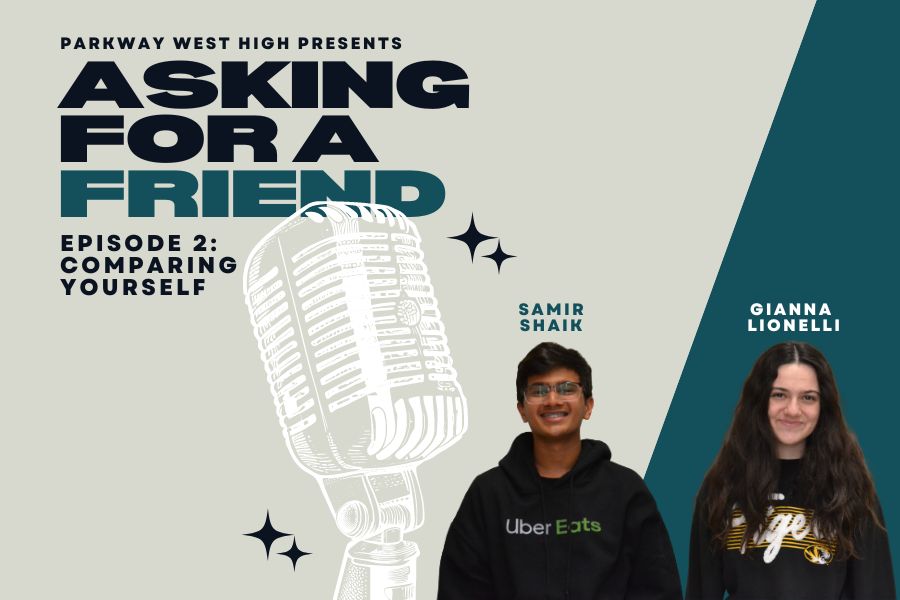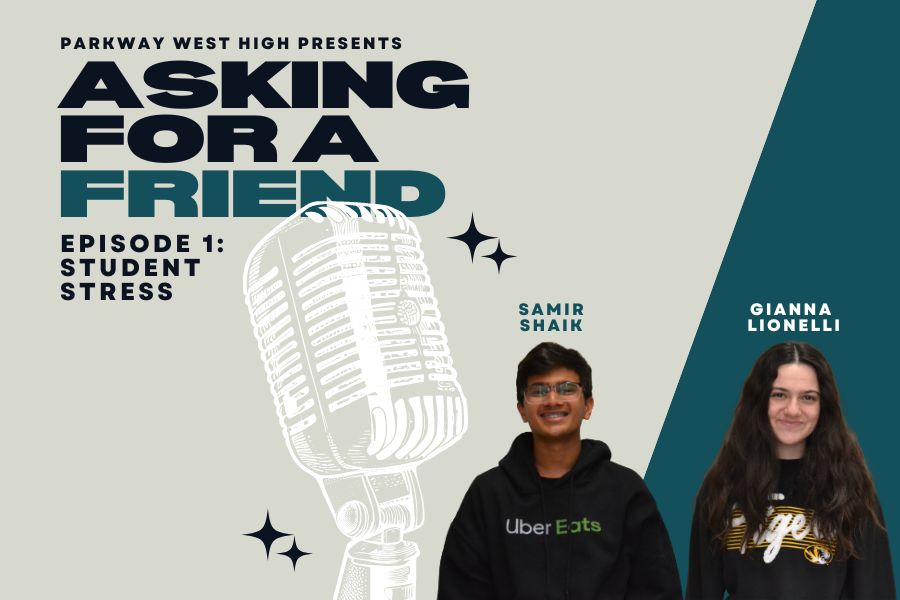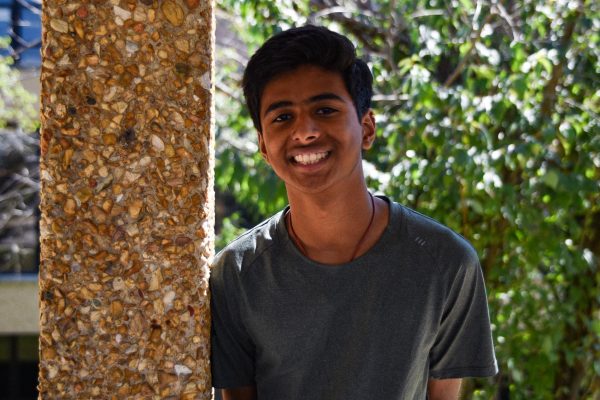Welcome to our newest podcast series, Pathfinder Debates, featuring two members who express their opinions on a political topic. In this episode, we explore the topic of gun control and gun safety.
Senior Raj Jaladi: Welcome to the first episode of “Pathfinder Debates.” Today, we’ll be covering the topic of gun control in America. I’m Raj Jaladi, I’m a senior here today, joined with…
Senior Max Brophy: Max Brophy, also a senior.
Senior Chris Gray: Chris Gray, also a senior.
Jaladi: I think one of the key things that differentiates America from other countries is the freedom of speech. We came up with this concept of bringing in two different perspectives from our school. So today, the topic is going to be about gun control and gun violence in America. So, I’m just going to start off with: should we have stricter gun laws, and to what extent?
Brophy: We need to completely ban guns, okay? That is what I think because guns are very harmful to the community. Over half of all suicides are caused by guns. And also, guns would help police tremendously because the main thing that police officers die by are guns, so if police are able to have the upper hand in any situation by having a gun over their opponent, they would easily be able to arrest them and would be in less danger.
Jaladi: Chris, what do you think?
Gray: I’m all in for guns. I think that they provide a lot of individual rights to everybody through the Second Amendment, and it limits the government power because it serves as a check on the government. I think that the Founding Fathers instilled the Second Amendment — the right to bear arms and keep and bear arms shall not be infringed. It kind of safeguards against tyranny and any means of self-defense.
Brophy: I think that the Second Amendment is completely outdated. It was ratified in 1791, which is a very long time ago. So, I feel like things always change, and I think now is the time to [change].
Gray: You can say that about a lot of stuff, but I think guns are always gonna be fundamental to America. And even if you ban them, there’s still gonna be a black market for them, whether you like it or not.
Jaladi: The next question is, since we’re in school, we’ve unfortunately seen tremendous increases in school shootings. Some people propose that teachers should be allowed to bear arms for the defense of the students in the school. Do you believe that to be true or a not-so-effective solution?
Brophy: I do not think this is a good idea. I don’t think anyone should really have guns because then the teachers will have way too much power. And if a teacher decides to go rogue, he can easily do that. So, I think the best course of action is at most, having a police officer with a gun, someone who’s a little bit more trusted. But, I think that’s as far as we should go.
Jaladi: Chris?
Gray: So I think that educating people, especially teachers, is the best way. So, I’ll allow them to have guns, just under stricter laws, so maybe 15 hours of gun use and gun safety classes; I think that would be really good. But, you shouldn’t just be allowed a gun because you’re a teacher. And it is sad to see all these mass shootings and school shootings, but that’s the past. We have to learn from the mistakes that Americans have made and just educate ourselves on it.
Brophy: I feel like I wouldn’t consider mass shootings “the past” when they’re happening every single day, multiple times.
Gray: You know what, that might be true, but I think that we have to think long term here. And educating our people will just instill a better understanding of how guns work and understanding the safety behind them will be beneficial to the future. And I think there’s an underlining issue of mental health within all these mass shootings. No one in their right mind wants to just go mayhem and kill a bunch of people. So, I think that’s also one of the biggest problems and should be touched on.
Jaladi: So you think that’s one of the problems that we need to fix?
Gray: Yeah.
Brophy: But I feel like that problem is what makes guns even worse because if there’s mental health issues in the nation, and then people with mental health issues are given guns, then that is when the mass shootings happen. So, guns are also a big part of the problem.
Gray: But, we can’t take away guns from people that are law-abiding citizens and use it for self-protection.
Brophy: All right, I think we just need to find the right balance because there’s gonna be people that aren’t using it for their protection, and there’s gonna be people that are using it for their protection. I think if no one has guns, there’s just no problem.
Gray: Yeah, but you’re never going to have that; it’s not a perfect society. The U.S. is never like that. There’s always pros and cons, there’s always bad and good in the U.S.
Jaladi: But, we have seen some countries, for example, Japan, who have banned guns, and they have a much lower crime rate than America. How would you interpret this data for your analysis?
Brophy: I think that them having stricter gun laws kind of helps just control it better. I feel like there’s a better distribution of people who have guns.
Gray: Yeah, I like what you’re getting out there, Max, but it’s a cultural issue. Japan, you go on the subway, no one’s talking. Everyone’s respectful. The streets are clean. You look at New York: you hear yelling all the time, people on the streets going crazy. That’s a mental health issue. So, I think it’s a lot of cultural and historical significance. The U.S. was founded on colonizing through the continent and westward expansion. I think gun ownership is seen as a symbol of heritage and independence.
Brophy: Back in the day, it was very hard to access police and people to protect them. So they basically had to fend for themselves and their families. So, it was more close, as in people would have their families protect each other to stay safe.
Gray: Yes, but it’s a fundamental right, you can’t stray away from that fact. Also, Brazil pretty much banned all guns, but Brazil is known for their cartels and other gun violence in the favelas. So if you see that as a similar cultural comparison to the United States, I think that’s what we’re gonna see if we ban all guns, Max.
Brophy: I don’t know, I feel like that’s also Brazil, though. Brazil has a way weaker government; they’re not able to control their citizens like the U.S. government is. It’s gonna be a lot more prominent there than it will here because Brazil just isn’t able to control the people that do have guns and just anyone in general.
Jaladi: Let’s switch topics here. Chris, do you want to give us another reason why we shouldn’t ban guns.
Gray: All the monetary value that guns bring through the industry and jobs and generating tax revenue. How do you think banning all these guns will affect that?
Brophy: I feel like people’s lives are more important than people’s jobs and money. I think that we might need to risk some jobs in order to save lives, and they’re not going to be completely dead. So, they’re able to come back on their feet, find a different job compared to someone who gets shot by a gun and dies, they’re not really able to come back at all.
Jaladi: Max, you mentioned the statistics on suicide. So, you basically believe that taking away guns will reduce the suicide rate in our country?
Brophy: Yes, I do believe that because over half of all suicides are caused by guns. So, if you get rid of that gun, they’re gonna have to some other methods. So, if they’re using those methods, I think it’s going to lower suicides quite a bit.
Gray: Yeah, we’re going to talk about this again, but mental health, that’s the biggest thing that’s coming up here. And I think expanding on that, it should be a topic that we talk about.
Jaladi: Okay, so let’s talk about it. Let’s take this into more positive light, how can we help American citizens’ mental health, in your opinion?
Gray: So I think this all starts with the nuclear family as a baby; you base everything on your life based on your environment. So, growing up, you learn manners, you learn etiquette. And if you’re not receiving any of that, if you live in a single-parent household, and it’s the opposing gender, they don’t know what to teach you in a masculine or feminine way. So, I think that building the foundation for these kids is the most important way to improve mental health, and the people that are all grown up, that have mental health issues, we just need more support for them. And substance abuse is also a big thing, just regulating that — just adding a lot of regulations, I think, will help.
Brophy: I would agree with that. I feel having a strong foundation, strong family is a good way to help with the mental health process. But, I feel like when you take away guns, especially for suicides, it allows for more opportunity of that, because if someone is easily able to kill themselves with a gun, it makes it harder when they don’t have guns, they’re more easily able to come back.
Gray: I see where you are going at, Max, but you keep on implying that suicide’s always going to be a thing. That’s the thing that we need to fix. Instead of going at the guns part, we need to be like, ‘Why are so many people committing suicide nowadays?’ While you [have] put some really good points on there, Max, but that’s a fake solution. In my opinion, I think that the underlying issue is actually mental health and fixing that will improve gun violence around America.
Brophy: But basically, what I’m saying is if you remove guns, it’s going to be harder to to cause violence and harder for people to commit suicides. So, it’s not a complete solution, but it definitely helps a little bit.
Gray: Max, do you live in a safe environment?
Brophy: Yeah.
Gray: What about all those people who don’t live in a safe environment? All these people who live in a bad area, it takes around five to six minutes for cops to show up to their house after calling 911. Do you know how many things can happen in five to six minutes, Max?
Brophy: I get what you’re saying, but the perpetrator is most likely going to have a gun, also. But if we ban guns, the vigilante isn’t going to have a gun himself.
Gray: You’re not understanding: there’s always going to be guns in America. You’re never going to stray away from that.
Jaladi: How’s that?
Max Brophy: I feel like it’s a long process. We’ll get there eventually in the future.
Jaladi: Chris, why do you say that we’re never gonna be able to ban guns?
Gray: I think that there’s always some evil people in the world that want to have guns for the worse, there’s some good people that want it for self-defense. I think you can look at both sides of this and see the necessity for guns.
Brophy: But I think that guns are going to be less accessible because right now everyone has access to guns, almost, if you’re above 18, something like that. If so many people have guns, shooting is gonna happen way more. So, if you ban guns, and only a few people have guns, when they do end up using that gun, it’s going to be easily tracked down by the police, FBI, anything like that, and they’re going to be less likely to use it.
Gray: Yeah, I understand what you’re saying. But this is touching on a point you said earlier: how it’s going to be a long process. Don’t you think educating and making gun safety laws more accessible to the general public will also be a solution in the long term?
Brophy: There’s always gonna be people who don’t listen.
Jaladi: That’s all the questions I had. Is there anything else either side wanted to add at this point?
Gray: You know, Max, you’re bringing in some really good points, and I’m finally understanding a different perspective from the other side. And I really enjoyed the talk today.
Jaladi: Yeah. So I guess I just want to end with this, then would you guys say you learned something new? And if so, do you think this was helpful for your understanding of this issue?
Brophy: I feel like I definitely learned something new. But, I feel like Chris hasn’t really changed my mind at all; I still very strongly believe that we should not have guns
Gray: So, I think the rise in mass shootings and all of these shootings have really changed the perspective through my eyes. But, I’m still staying strong with pro-guns just because the Second Amendment, right, the Constitution saying all this, so I enjoyed this talk with you, Max.
Brophy: Yeah, I enjoyed the conversation, too.
Jaladi: Thank you so much for tuning into this episode.


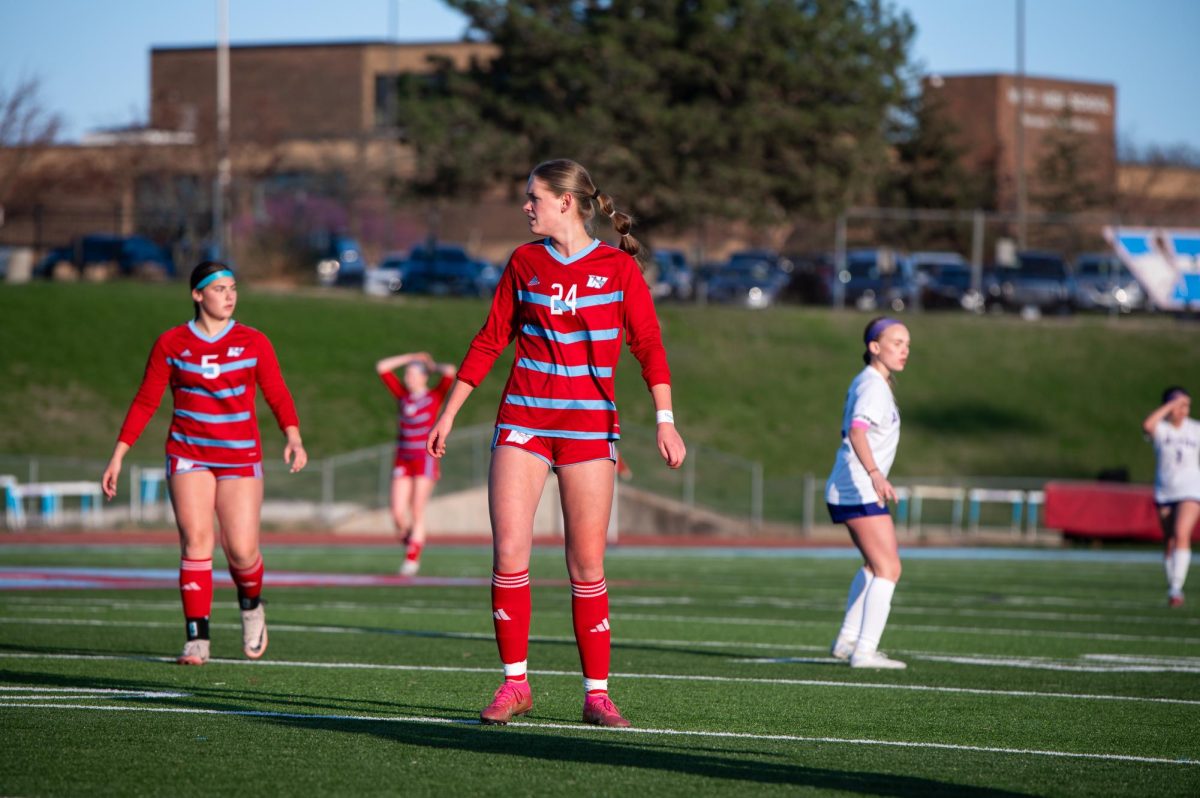
![Blending harmonies with dynamic control, senior Spencer Rahm takes the stage as part of the jazz choir's spring performance. Jazz Coffee House took place on April 22, marking the culmination of months of preparation by West High’s musicians. “To me, [choir] is an opportunity every day to get to sing with my friends and work on our songs that we have concerts for. [Seeing] the results after working together with people is really rewarding. Jazz Coffee House concert was a reflection and a result of all the hard work we've put in the last three months,” Rahm said.](https://pwestpathfinder.com/wp-content/uploads/2025/05/DSC_0214-3-1200x800.jpg)
![During a game of cornhole, junior Aliza Schroeder celebrates with her buddy after making her bean bag through the board. Cornhole was one of many games offered in Victory Village. “We liked the activities in the Victory Village. We had a lot of fun playing the games, and she was really excited when she did well. We had fun celebrating. It’s important to be inclusive, involved [and] be excited to celebrate,” Schroeder said.](https://pwestpathfinder.com/wp-content/uploads/2025/04/DSC_9749-1200x800.jpg)
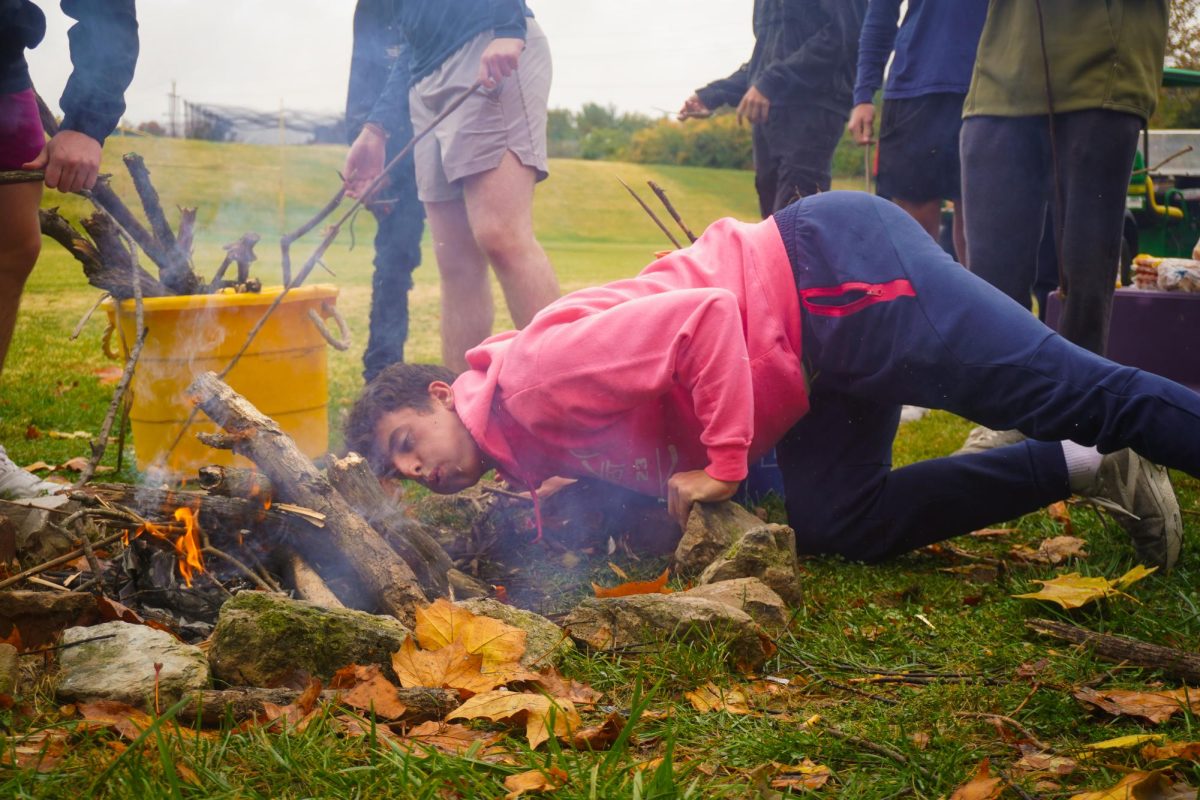
![All eyes on him, senior Jack Mullen raises the sacred chalice of the Addams Family. Mullen’s father was his inspiration for his role as Gomez Addams, who was Wednesday Addam’s father in the show. “The most impactful part of this experience was getting closure, because this was my last show, [and] it was probably my favorite show I've done here. I wanted to do the best I could, and to reflect on my growth and experience in the program. The thing I learned is that not everything is going to be perfect. I went through a lot vocally, and so I had to protect my health, and I overcame it,” Mullen said.](https://pwestpathfinder.com/wp-content/uploads/2025/03/DSC4947-1200x798.jpg)


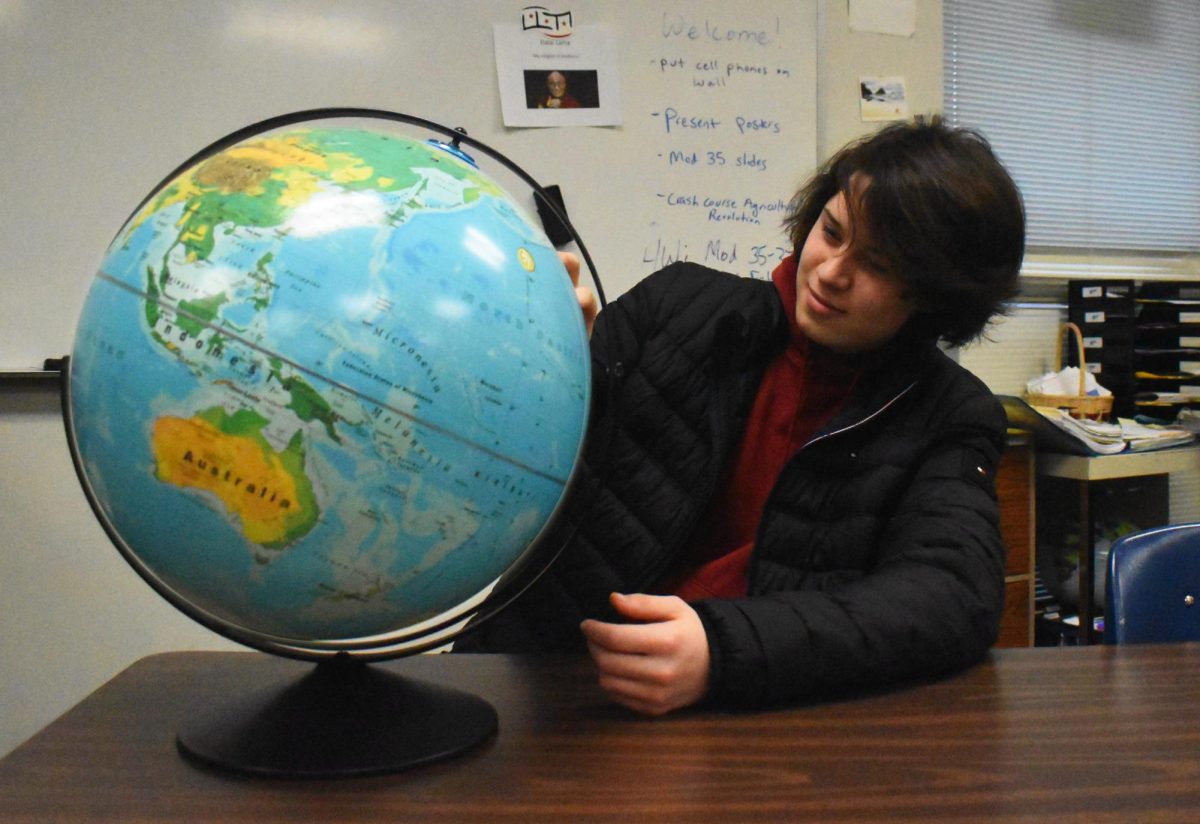
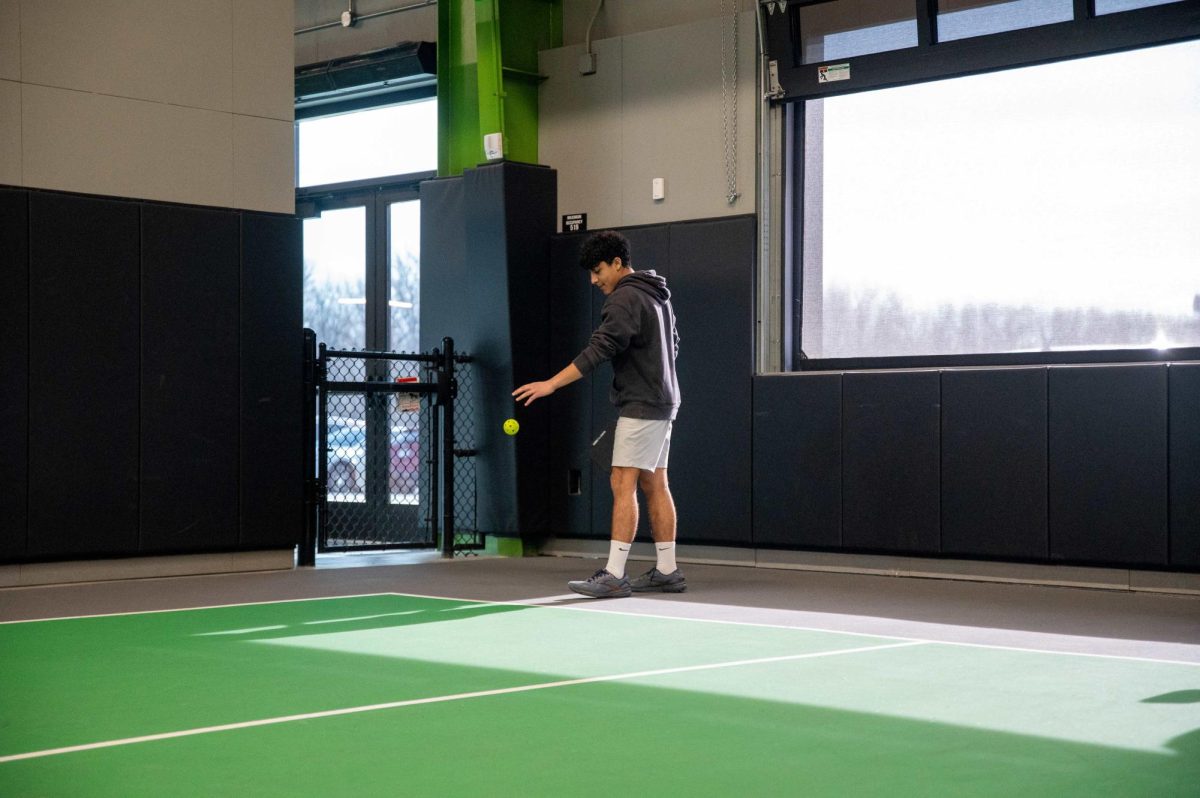


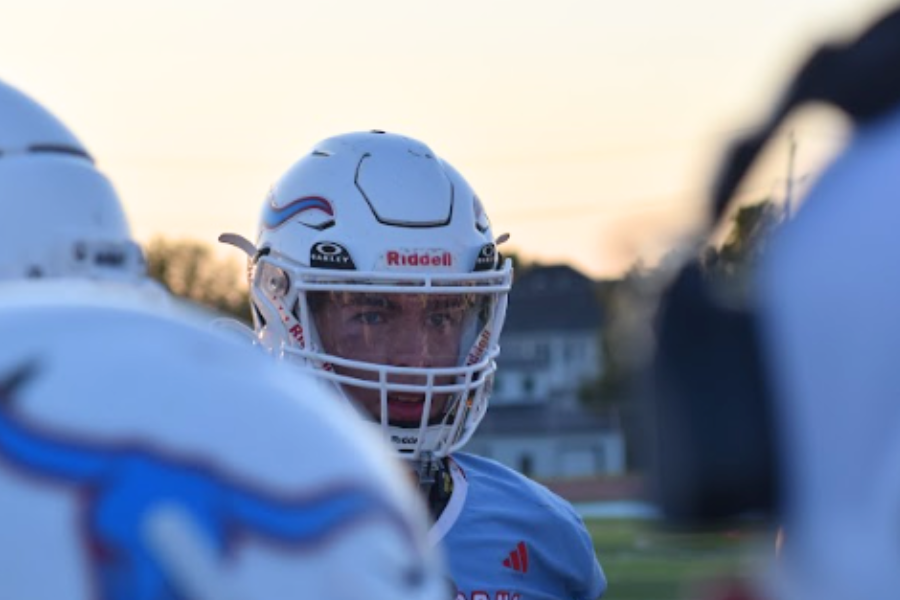


![In perfect shooting form and with eyes on the rim, junior Tyler Kuehl is about to shoot his next basket in the last game of the season against Marquette High School. Kuehl has been playing basketball since he was 5. “Even though I played basketball all my life, the game-winning shots can be pressure, it's confidence. If you're going into that shot and not thinking that you're gonna make it, it's obviously not going in. And if you believe, [it will]. That's the only way you can succeed,” Kuehl said.](https://pwestpathfinder.com/wp-content/uploads/2024/01/unnamed-32-1-1200x1200.png)


